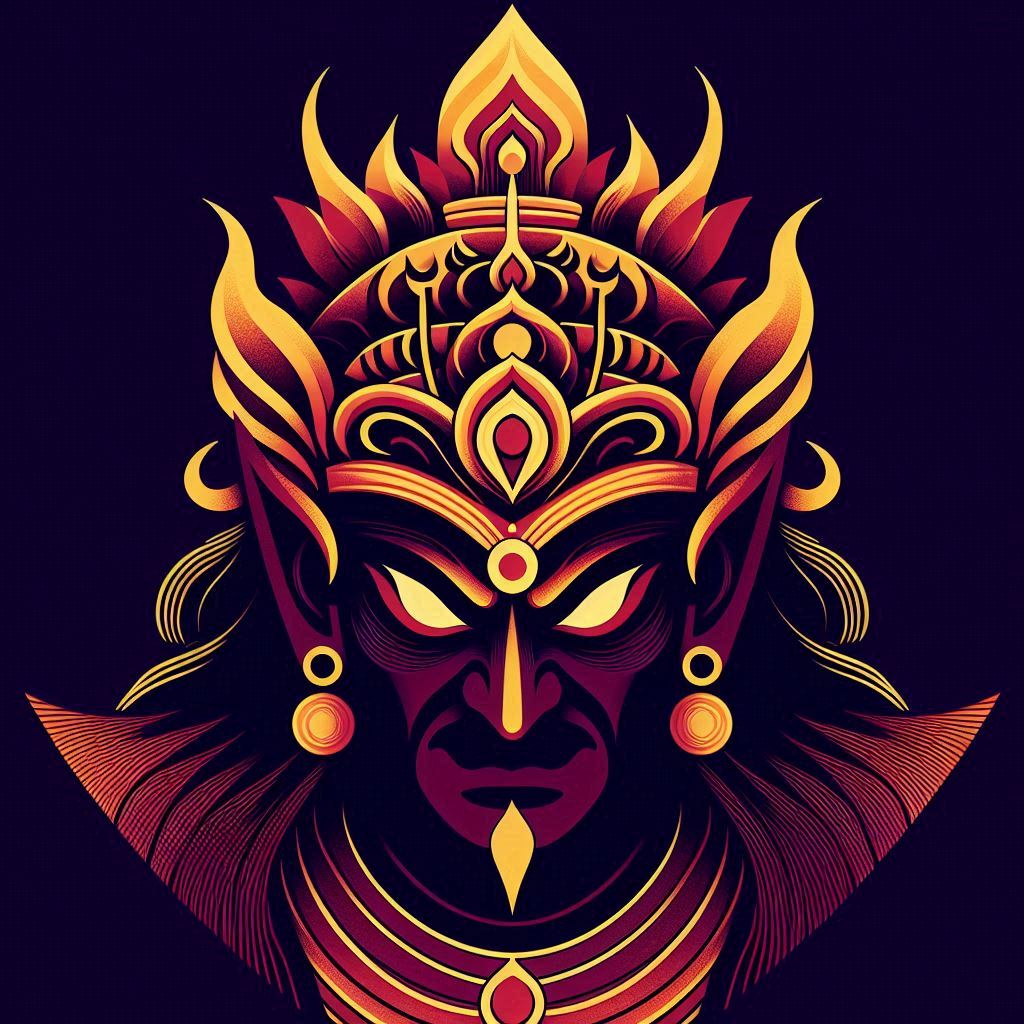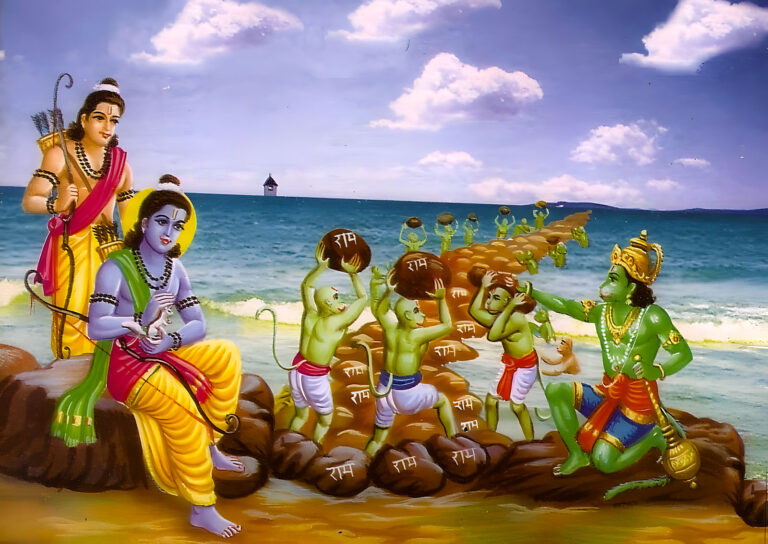Understanding Ravana: Unraveling the Complexity of His Character
Unpacking Ravana’s Character: Beyond the Villain
Ravana is a name that echoes through the ages, often associated with villainy and malice in the epic Ramayana. But can we truly reduce such a complex character to a mere antagonist? Let’s dive into the multifaceted persona of Ravana and explore the various layers of his character that often go unnoticed.
Who Was Ravana Really?
Ravana, the king of Lanka, is depicted as a ten-headed demon with immense strength and intelligence. But to simply categorize him as a villain would be an oversimplification. What if I told you that Ravana was a devoted scholar, a master of music, and even a staunch devotee of Lord Shiva? Now you might be wondering, where’s the catch? How can someone so learned and revered commit heinous acts? This paradox is what makes Ravana’s character so intriguing.
The Scholar and the Devotee
Ravana was not just a might-is-right kind of king; he was a celebrated scholar. His dedication to learning saw him mastering the Vedas, the ancient texts of Hindu philosophy and spirituality. Imagine a ruler who combines brains with brawn!
राजा रावण इस संसार में, विद्या का था अलख।
(Rāja Rāvaṇa is sansāra meṁ, vidyā kā thā alakha.)
Translation: King Ravana in this world, was a beacon of knowledge.
His devotion to Lord Shiva is also noteworthy. He is said to have composed the “Shiva Tandava Stotra,” a beautiful hymn praising Lord Shiva’s cosmic dance. This hymn showcases not only his devotion but also his poetic talent.
शिव तांडव स्थोत्रम्, दर्शाता शक्ति भक्ति।
(Śiva Tāṇḍava Sthotram, darśātā śakti bhakti.)
Translation: The Shiva Tandava Stotra showcases the power of devotion.
The Dichotomy of Personality
Ravana’s character exemplifies the age-old clash between good and evil. On one side, we have his devotion and scholarly pursuits; on the other, his ambition led him to abduct Sita, Lord Rama’s wife.
So, what drove this man of wisdom to such drastic actions? That’s where the intricacies of his character come into play. Perhaps his arrogance or his obsession with power clouded his judgment—traits we can all recognize in today’s world.
Think of it this way: haven’t we seen brilliant individuals, clouded by ambition, making catastrophic decisions?
The Family Man
Despite his fierce reputation, Ravana was a devoted family man. He had several wives and children, and he loved them dearly. This facet of his personality is often overshadowed by his more notorious deeds, but it’s essential to understand that Ravana had familial ties and emotions.
Imagine a father who, despite being a feared ruler, tries to provide for his family and take care of their needs. Does that not add another layer to his character?
पुत्र सदा करते सदा उन्नति, पुत्रा का था राक्षस।
(Putra sadā karte sadā unnati, putrā kā thā rākṣasa.)
Translation: A son who always strived for progress, though his son/daughter was a demon.
A Leader with Vision
Ravana was also a visionary leader. Under his rule, Lanka flourished, turning it into a prosperous kingdom. The extravagant palaces, striking architecture, and wealth of the land mirrored his ambition. This underscores the idea that a leader doesn’t have to be evil to be powerful but can have qualities that inspire others as well.
Imagine walking through the bustling streets of Lanka, with every corner showcasing art, culture, and prosperity—doesn’t that paint a different picture?
लंका उत्थान का चिह्न, रावण का राज।
(Lāṅkā utthāna kā chiṁha, Rāvaṇa kā rāja.)
Translation: Lanka, a symbol of progress, was ruled by Ravana.
The Curse of Arrogance
While Ravana’s scholarly brilliance and leadership skills are admirable, it’s essential to recognize the significant character flaw that led to his downfall: arrogance. His unwavering pride pushed him to believe that he was invincible, which ultimately clouded his judgment.
Think of it; haven’t we all experienced instances where our pride got in the way of sound decision-making? Since Ravana believed he could conquer anyone, his overconfidence encouraged him to challenge Lord Rama, a central figure in the epic.
गर्व के फंदे में खुद को फँसाया,
(Garva ke phande me khud ko phansāyā.)
Translation: Caught in the trap of his own pride.
The Philosophical Debate
Ravana’s existence opens up compelling discussions on morality, good versus evil, and the duality of human nature. Is he purely evil, or was he merely human, battling his demons?
Let’s connect it to modern-day heroes and villains. Aren’t there numerous examples of people we idolize who have also faltered? The complexity of human nature is such that we can all embody different elements at different times. This notion is captured beautifully in one of the dohas:
सत्य के लिए रावण ने युद्ध किया,
(Satya ke liye Rāvaṇa ne yuddh kiyā.)
Translation: Ravana waged war for the sake of truth.
Exploring Ravana’s Legacy
Ravana’s legacy extends beyond his misdeeds. He is often seen as a tragic figure caught in the web of fate. The way he balanced his roles—as a father, husband, king, and scholar—offers valuable lessons about the human experience.
In a way, his character forces us to reflect on our lives. Are we too quick to label someone as “bad” without exploring their story?
Final Thoughts
In conclusion, Ravana is a brilliant example of complexity in character. He was much more than a mere antagonist in the Ramayana; he was an intelligent scholar, a devoted family man, and a powerful leader whose hubris ultimately led to his downfall. His legacy teaches us about the multifaceted nature of humanity—how even the most notorious figures can have layers that invite empathy and understanding.
Isn’t it fascinating how a character so often seen in negative light can teach us so much about life? Hopefully, this exploration has prompted you to think deeper about not just Ravana, but about the nature of villainy and heroism in our lives.
FAQs
1. Why is Ravana often considered a villain?
Ravana is primarily seen as a villain due to his abduction of Sita and his long-standing conflict with Lord Rama. However, his character is more complex, including scholarly pursuits and devotion to Lord Shiva.
2. Was Ravana a learned scholar?
Yes, Ravana was a master of the Vedas and a skilled musician and poet. His work, the “Shiva Tandava Stotra,” showcases his intellectual qualities.
3. How does Ravana’s character relate to modern-day values?
Ravana’s character highlights themes like the complexity of human nature, the duality of good and evil, and the consequences of unchecked pride, all of which remain relevant today.
4. Did Ravana have a family?
Yes, Ravana had several wives and children and was known to be a devoted family man, adding another layer to his character.
5. What can we learn from Ravana’s story?
Ravana’s legacy teaches us about the importance of understanding context in human behavior. It calls for compassion over judgment when recognizing the dynamics that shape a person’s actions.








